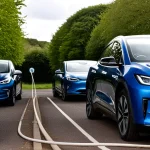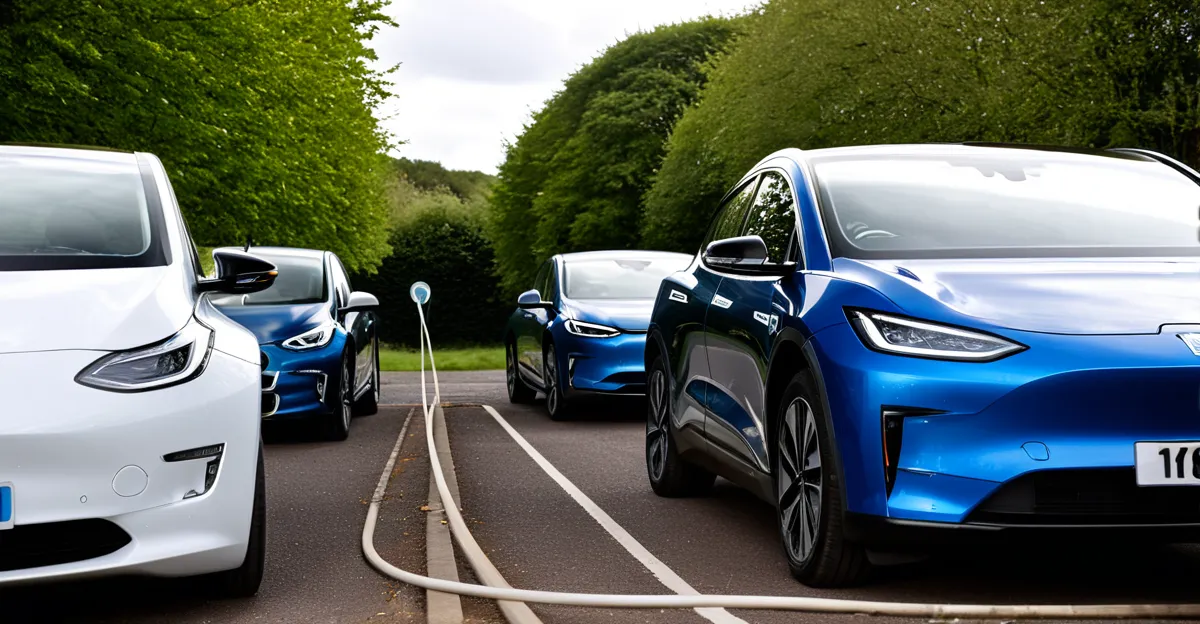Government policy and legislative framework for electric vehicle adoption
UK electric vehicle policy plays a pivotal role in accelerating EV adoption by establishing clear legislative goals and incentives. The government has set ambitious timelines, including the phasing out of new petrol and diesel car sales by 2030, and hybrids by 2035. This legal framework creates a clear roadmap encouraging consumers and manufacturers to shift towards electric mobility.
Key government incentives include grants on new electric vehicles, tax breaks such as reduced Vehicle Excise Duty, and exemptions from congestion charges in certain cities. These measures reduce barriers to ownership and increase EV affordability. Additionally, manufacturers benefit from research funding and innovation grants aimed at enhancing EV technology and production.
Also read : How Is the UK Media Industry Evolving in the Digital Age?
The government’s approach integrates environmental targets with practical support, demonstrating a comprehensive understanding of market dynamics. By providing financial initiatives alongside a robust legal framework, the UK ensures that EV adoption is not only desirable but feasible for a wide range of stakeholders.
This policy environment strengthens consumer confidence, guiding the automotive industry through a transformative phase aligned with national decarbonisation goals. Understanding these policies is fundamental to grasping the evolution of the UK EV market.
Also to discover : What is the influence of international news on UK media?
Infrastructure development and public charging network
The evolution of UK EV charging infrastructure is crucial for widespread electric vehicle adoption. The government’s strategy prioritises expanding the public charging network by increasing the number of accessible and reliable EV charging points nationally. This development includes significant investment in rapid chargers, designed to reduce charging time and improve convenience, especially on busy routes and urban centres.
Addressing rural and underserved areas, initiatives focus on providing equitable access to charging facilities beyond major cities. The ambition is clear: a seamless and comprehensive network that supports the growing fleet of electric vehicles. Collaboration with the private sector plays a vital role, leveraging expertise and resources to enhance the coverage and maintenance of charging stations.
Recent government plans aim to install tens of thousands of additional EV charging points by the mid-2020s. Such expansion alleviates range anxiety—a major barrier to EV consumer adoption—and facilitates long-distance travel, advancing the UK’s transition towards electric mobility. These efforts highlight both a pragmatic and forward-thinking approach to infrastructure challenges, enabling the UK’s EV ecosystem to flourish sustainably.
Market uptake, consumer adoption, and industry response
UK EV sales statistics show a strong upward trajectory, with electric vehicle registrations increasing significantly year-on-year. In 2023, EVs accounted for over 20% of new car sales, reflecting growing consumer confidence and shifting market preferences. However, key challenges persist in the EV consumer adoption journey. Cost remains a primary concern, as electric vehicles generally have higher upfront prices compared to petrol and diesel cars, despite government incentives mitigating this gap. Range anxiety also influences purchasing decisions; though improvements in battery technology and UK EV charging infrastructure help alleviate this worry, some consumers still hesitate.
Availability of models tailored to diverse needs affects market uptake. The automotive industry transition is robust, with manufacturers investing heavily in electric drivetrains, battery development, and production scalability. Leading carmakers are broadening their EV portfolios, ensuring options from compact city cars to larger SUVs meet various consumer expectations. The industry’s adaptation signals readiness to support future demand and aligns with evolving UK EV legislation promoting zero-emission vehicles. This comprehensive market response will be critical for sustaining momentum toward nationwide electrification.
Addressing challenges and future projections
As the UK continues its ambitious electric vehicle transition, several critical challenges must be addressed to sustain growth. One significant issue is grid capacity; the increasing demand for electricity from EV charging puts pressure on the national grid, necessitating upgrades and smart management solutions. Supply chain constraints, particularly in battery materials and semiconductor availability, could slow production rates, impacting EV availability and prices.
Economic considerations also play a role. While government incentives reduce initial costs, the long-term affordability of EVs depends on continued innovation and cost efficiencies in manufacturing. Experts anticipate that overcoming these hurdles will require coordinated efforts between policymakers, industry stakeholders, and energy providers.
Projections suggest that widespread adoption will accelerate as infrastructure improves and technology advances. Ongoing initiatives aim to ensure that the UK EV transition challenges are met with sustainable and equitable solutions, supporting all communities. Focused investments in renewable energy and grid resilience are central to this goal, ensuring that the future of electric vehicles in the UK remains promising and inclusive. This expert analysis underscores the importance of strategic planning for a successful nationwide electric mobility shift.




